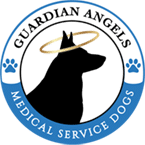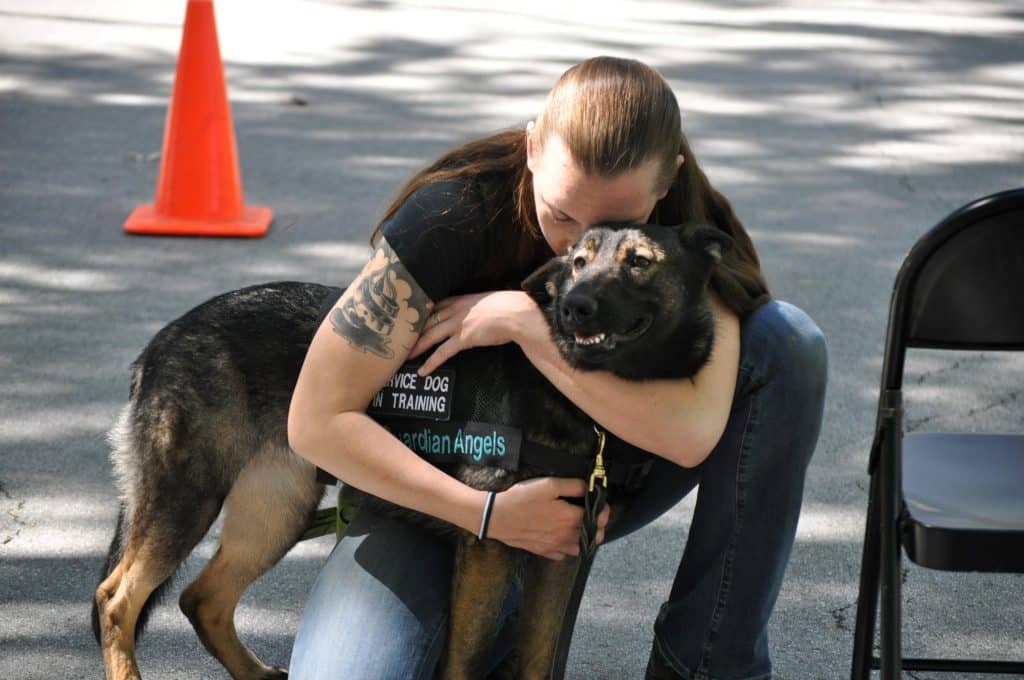Service dogs play an invaluable role in the lives of many individuals, providing not only companionship but essential assistance in daily activities. From guiding those who are visually impaired to alerting their handlers about medical conditions, these highly trained animals are indispensable partners.
However, the presence of service dogs in public spaces requires a specific set of etiquette guidelines to ensure they can perform their duties without disruption.
Understanding and respecting service dog etiquette is crucial for everyone. Whether you’re a service dog recipient, an employer, or someone who encounters them in public, knowing the do’s and don’ts can help create a more inclusive and supportive environment. This article aims to highlight the importance of proper behavior around service dogs, offering practical tips and insights to foster respect and harmony.
By adhering to these guidelines, we can all contribute to making public spaces more accessible and accommodating for those who rely on service dogs. So, let’s dive in and explore the key aspects of service dog etiquette that everyone should know.
Etiquette Tips for Service Dog Recipients
As a recipient, it is your responsibility to ensure that your dog behaves politely in public and within your place of business. You have total control over your dog’s actions, and it is essential for the dog to behave appropriately, as required by both federal and most state laws.
If your dog causes damage to merchandise, soils the premises, lifts its leg on objects, threatens someone, or acts aggressively, presenting a public safety threat, it is entirely within the rights of the establishment to ask that your dog be removed. If your service dog does become disruptive, it is critical that you take all necessary steps immediately to ensure they cause no further issues.
It’s also important to note that you cannot be denied access to any public
establishments like a restaurant because of your service dog. One public venue that you should be very respectful of is visiting a zoo. There are many areas you should not visit as these exotic animals may see a dog as a predator and injure themselves in a panic.
When taking your service dog somewhere like a restaurant, ensure they are wearing their vest (even though this is not required by law, it does help you avoid unnecessary confrontation) and lying under the table so they do not block foot traffic for other guests and waitstaff. Service dogs should never be allowed onto chairs or in the booth. Keeping them lying down and close to you will help prevent disruptions.
At Guardian Angels Medical Service Dogs, we use the one-foot rule, which means your service dog should never be more than one foot away from you at all times. This ensures that they are not bothering other patrons, looking for crumbs on the floor, and remain attentive to you. If you have a job, you must introduce your service dog to your place of employment.
The first thing a recipient should do is ask their employer for a reasonable
accommodation. This means that you are informing them that you need to bring your service dog to work with you due to your disability. Your employer does not have to make any special modifications to their business or your position; they are just required to allow you to bring the service dog to work.
If they request you to complete paperwork, you can do so as long as they aren’t asking you any personal questions since your medical information is protected under HIPPA. If you have any questions or issues with the paperwork, check with the EEOC or your state disability services. Additionally, Guardian Angels Medical Service Dog can assist you if you have questions.
When you go to work with your service dog, it is recommended that a meeting is held with your fellow employees and other staff members. This will allow you to introduce your service dog to your coworkers. You don’t have to disclose your disability, but just that the dog is trained to assist you with your disability. It is also a chance for you to lay the ground rules for others at your job so they understand not to talk to your service dog or give them treats or any other distractions that could take away from their ability to be attentive to you.
Etiquette Tips for Business Owners
As a business owner, you may wonder how to handle when a service dog is brought into your establishment. By federal law, those who have a service dog are not required to have a certification or identification for their dog. Service dogs are not required by law to wear a service dog harness, bandana, or any other identifying accessories. We require our service dogs to wear a vest in public to help avoid confrontation or other issues, even though it is not a legal requirement.
Business owners should remember that they can’t ask recipients about the details of the disability or require any proof of certification for their animal. When encountering an individual with a service, it is critical to remember that some disabilities are invisible, so be sure to approach the situation with respect. If an individual enters your business with a service dog, you can legally ask them the following:
- Is this a service dog?
- What tasks does this dog perform for you?
If the service dog is disruptive or posing a risk to your customers or staff due to their behavior, you have the right to deny access. If the dog is causing issues such as stealing food or soiling the premises and the recipient can’t get the dog under control, it is appropriate for you to ask them to leave. You can’t ask them to leave just because someone is allergic to or afraid of dogs.
Some business owners may be uncomfortable with a service dog entering their business, but it is important to allow access to individuals with service animals to ensure compliance with the law while also creating an atmosphere of inclusion and respect for all employees and customers.
If you have any questions about how to handle a service animal in your place of business, it is best to consult with your state EEOC to ensure your rights and the rights of the individual with the service animal are respected. You can also refer to this guide, which answers multiple questions at https://www.ada.gov/resources/service-animals-faqs/
Etiquette Tips for the General Public
As a member of the public, it is essential to remember that service dogs are working animals and should not be distracted from their duties. Additionally, never ask for proof or documentation of someone’s disability or their need for a service dog. This information is private and protected by law. Respect their privacy and focus instead on treating them with kindness and understanding.
Finally, always ask for permission before petting or interacting with a service dog. While they may be cute and friendly, these dogs are on the job and must remain focused on their handler’s needs. Ignoring this rule can cause disruptions and even put the recipient in danger if the dog misses an important signal or cue.
Many recipients are already navigating a world where they do not feel comfortable, so it’s important not to create a confrontational experience for them. If you have questions or comments, be sure to direct them to the recipient respectfully and avoid asking any personal or medical questions.
Have Questions? Contact Guardian Angels Medical Service Dogs Today!
Understanding and practicing proper service dog etiquette is essential for creating a respectful and supportive environment for the service dog team, employers, business owners, and the general public. By following these do’s and don’ts, we can all play a part in fostering a community that values and supports the vital work of service dogs.
If you have questions about service dogs or our medical service dog organization, we are happy to help! You can contact us today to learn more.
- What Every Dog Owner Should Know About Service Dogs and Public Safety - January 23, 2026
- Holiday Safety Tips for Service Dogs: What Recipients and the Public Should Know - December 17, 2025
- Message from Our Founder – 2025: A Year of Life-Changing Service - December 5, 2025





